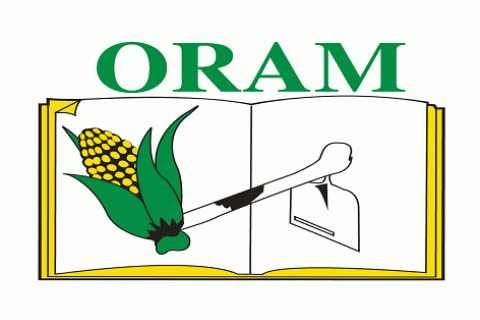Namati: Innovations in Legal Empowerment
Namati is an international organization that tests the potential of legal empowerment through innovative interventions and research. Through our work, we seek a better understanding of the impacts of legal empowerment and the most effective mechanisms for achieving them.
As a means of cultivating a more robust movement for legal empowerment, Namati also hosts a growing Global Legal Empowerment Network of practitioners and supporters. Network members are active in every continent in the world, whereas Namati’s programs and research focus on exploring the potential of legal empowerment in specific countries, including Sierra Leone, India, Liberia, Mozambique, and Uganda.
Mission: Building a movement of grassroots legal advocates
Resources
Displaying 66 - 69 of 69Malawi Agricultural Sector Wide Approach Support Project Multi Donor Trust Fund
General
2.1. The Project Development Objective (PDO) is to improve the effectiveness of investments aimed at food security and sustainable agricultural growth, and [GEF Global Environment Objective] strengthen the natural resource base in agricultural lands, through a doubling of the area under sustainable land management as a basis for securing ecosystem services and sustainable agricultural productivity. 2.2. The main purpose of the MDTF is to increase the ASWAp-SP impact on food security and growth by scaling up on-going activities with a particular attention to: (a) Strengthening MoAFS administrative systems, particularly at the district level with a stronger focus on monitoring and evaluation systems; and strengthening MoAFS's capacity to implement the ASWAp and (b) Enhancing FISP organization and implementation, monitoring and evaluation, with a stronger focus on maize and legumes seeds availability; Increasing the nationwide coverage of research and extension activities to reach out to more farmers and to increase FISP payoffs and sustainable impact on smallholders; and Improving the efficiency of agricultural research and extension services while promoting a more pluralistic approach to delivering these services. 2.3. In addition, the MDTF will also help develop the following additional activities: (a) Diversify the maize-based production systems by: (i) extending the current research and extension approach to other important crops (with a particular focus on pulses/legumes, important for nutrition and growing local and regional markets); and (ii) improving legume crop production and marketing, and ensuring availability of sufficient certified legume seeds to meet increasing demand both within and outside of FISP. (b)Improve the agricultural business environment and promote agribusiness partnerships in support of agricultural diversification, a more market oriented agriculture and integration into agricultural value chains and regional markets. and (c) Improve market access to the most productive agricultural areas through the improvement and sustainable maintenance of feeder roads.
Land: Enhancing Governance for Economic Development (LEGEND)
General
The project supports country offices to set up and implement new land programmes by funding programme scoping and design, and providing expert 3rd party advice during implementation; supporting a range of global level activities covering improved private sector land investment, land information and knowledge and land rights protection.
Piloting the ‘Community Land Value Chain’ in Zambezia, Mozambique
General
ORAM with Terra Firma, provided assistance to 20 communities and 14,000 households living in and around concession areas granted by government to Portucel Mozambique, a subsidiary of the Portugal based Navigator company, for Eucalyptus plantations, intended to supply European pulp and paper markets. The project adopted a technical approach and set of digital tools known locally as CaVaTeCo - the Community Land Vale Chain approach, developed by Terra Firma and ORAM. This was used to identify local community boundaries, and the household and family owned land parcels within them, create legally-recognised institutions to represent each community, establish local land registries supported by a centralised digital platform, and issue certificates to all land holders. The project also undertook land use planning with each community, and promoted women’s participation and a high proportion of land parcels are registered in the name of women. ORAM facilitated recognition by district government of the community and household land rights documented and the community land associations established The principal outcomes of the project was to secure the land rights of communities in the focal areas of Portucel’s concession in Zambezi province, enabling Portucel to operate on the basis of the free, prior and informed consent of the legitimate land rights holders, and creating a more level playing field for negotiation between the communities and Portucel on the terms and arrangements for the company to use community land. This can also potentially assist in enabling other companies and government to adopt best practice for responsible in agriculture abdn plantation forestry. As the project got underway, Portucel agreed to suspend land acquisition and to proceed to negotiate land access to land on the basis of documented community land rights. The company changed its plans from a focus on large scale plantations and adopted an agro-forestry mosaic approach that would include small scale plantation blocks and outgrower arrangements, with support to farmers to produce of income generating crops including alternative tree species. The project also undertook training of community land association members in legal aspects and business negotiation with outside investors seeking to access land. Formal negotiations between the local communities on Portucel based on local community members’ documented land rights and their assessment of what land could be made available to the company did not take place during the life ot the Legend project , as Portucel was not ready to propose new land use agreements and plans. Grantee’s products and project documentation CaVaTeCo Briefing Note: Piloting the “Community Land Value Chain” Approach in Mozambique CaVaTeCo Briefing Note: Key Messages on the “Community Land Value Chain” Approach in Mozambique CaVaTeCo Technical Guide 2 - Steps in Delimitation of Family Lands CaVaTeCo Technical Guide 1 - Stages of the CaVaTeCo Approach CaVaTeCo Technical Guide 4 - Active Community Participation Improves Efficiency of Family Land Delimitation CaVaTeCo Technical Guide 3 - Common Problems in Land Delimitation Guião Técnico de CaVaTeCo 2 : Passos de Delimitação de Parcelas Familiares Guião Técnico de CaVaTeCo 3 - Problemas Frequentes na Delimitação de Terra Guião Técnico de CaVaTeCo 4 - Participação Activa Melhora a Efficiência da Terra Familiar Governação Participativa de Terras - Preparação para Negociação com Investidores CSO Briefing Note for Enviromental Impacts of Eucalyptus Plantations Report on the training for Community Land Associations to prepare for negotiation with investors Portucel Mozambique slide presentation (September 2019) Options for Securing Tenure and Documenting Land Rightsin Mozambique: A Land Policy & Practice Brief Options for Securing Tenure and Documenting Land Rightsin Mozambique: A Land Policy & Practice Paper Opções para Garantir a Posse e a Documentação dos Direitos à Terra em Moçambique: Um Infõrmativõ Breve Documento sobre as Políticas e Práticas de Acesso à Terra Opções para Garantir a Posse e a Documentação dos Direitos à Terra em Moçambique: Um Documento sobre as Políticas e Práticas de Acesso à Terra
Namati - Innovations in Legal Empowermnent
Very rich site with many resources..."In a world where billions of people live outside the protection of the law, Namati is building a global movement of grassroots legal advocates who work with communities to advance justice. These advocates are solving problems on the front lines to ensure that people can protect their land, access essential services, and take part in the decisions that govern their lives...







